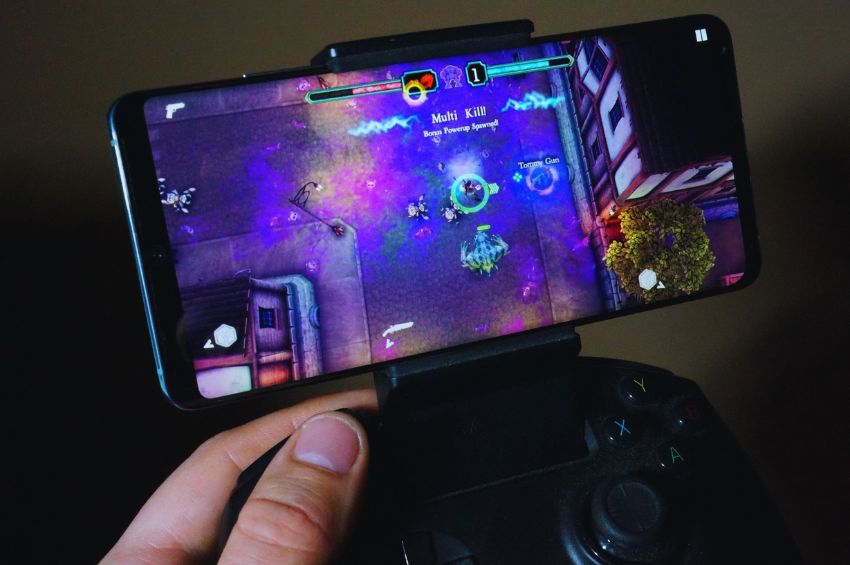Android Studio For Android games now make up a major portion of the mobile app market, providing consumers all over the world with enjoyment, engagement, and innovation. You’ve come to the correct place if you’re an aspiring game developer or a seasoned professional looking to explore the world of Android game development. You can use Android Studio, Google’s official integrated development environment (IDE), to develop your game ideas. In this post, we’ll examine how Android Studio may be used for creating Android games, giving you insightful advice along the way.
Android Studio for Android Games Development

It’s crucial to set up Android Studio correctly before diving into the complexities of Android game development. Follow the installation instructions provided for your operating system to install the most recent version of Android Studio after downloading it from the official website (developer.android.com/studio). Microsoft Windows, Apple Mac OS X, and Linux all support Android Studio.
When you run Android Studio after installation, a welcome screen will appear. You can launch an existing project, start a new one, or access other development tools and resources from this point.
Choosing the Right Game Development Framework
Game development frameworks or engines are frequently used in the creation of Android games. These frameworks include fundamental capabilities including graphics rendering, physics simulations, and user input management, serving as a foundation for game development. Several well-liked Android game development frameworks are:
Unity: Unity is a flexible and popular game engine that facilitates the creation of both 2D and 3D games. Both independent and AAA game developers use it because of its user-friendly interface and compatibility with numerous platforms.
Unreal Engine: Developers who produce high-end 3D games prefer Unreal Engine due to its outstanding graphical capabilities. It’s a powerful engine that facilitates the creation of games for both Android and other platforms.
LibGDX: LibGDX is a free and open-source framework for creating 2D video games. It has a lot of flexibility, is effective, and is lightweight.
Godot Engine is an open-source gaming engine with a special scene structure and a strong emphasis on user-friendliness. It facilitates the creation of both 2D and 3D games.
Even though these are among the more popular choices, the framework you choose will rely on the particular project needs, your level of experience, and your own preferences.
Building Your Game in Android Studio
Once you’ve decided on a framework for game development, you can integrate it with Android Studio to speed up development. Here is a general breakdown of the procedures needed to create an Android game:
Create a New Project in Android Studio and select the suitable game development template or adjust the project settings to conform to the framework of your choice.
Design Game Elements: Create the levels, characters, and other game assets using free or inexpensive graphic design software like GIMP or Adobe Photoshop. Add these resources to your project.
Write Code: Create the game’s logic in a programming language that is appropriate for the framework you have selected (for example, C# for Unity, C++ for Unreal Engine, Java or Kotlin for LibGDX). Code editors may use capabilities like auto-completion and debugging thanks to Android Studio.
Test Your Game: The robust emulator provided by Android Studio enables you to play your game on a variety of simulated Android devices. For actual testing, you can also connect an actual Android handset.
Enhance Performance: The hardware capabilities of Android devices range widely. By fine-tuning visual settings and including effective algorithms, you can ensure that your game works without a hitch on a variety of devices.
Your game can be published on the Google Play Store or other Android app distribution channels once it has been finished and extensively tested. To create signed APKs (Android Package files) and get your game ready for distribution, use the tools offered by Android Studio.
Tips for Successful Android Game Development
Start Small: To increase your talents gradually if you are new to game creation, start with easy tasks.
Learn from Others: Explore online tutorials, forums, and communities to learn from experienced game developers. Sharing your work and seeking feedback is invaluable.
Regularly Update Your Skills: Game development is a rapidly evolving field. Stay updated with the latest tools, techniques, and trends.
Optimize for Mobile: Keep in mind that mobile devices have limited resources compared to PCs or consoles. Optimize your game’s performance, memory usage, and battery consumption.
Monetization Strategies: Consider how you’ll monetize your game, whether through in-app purchases, ads, or upfront purchases. Implement these strategies wisely.
Android Studio, coupled with the right game development framework, can be your gateway to creating immersive and captivating Android games. With dedication, creativity, and continuous learning, you can turn your game development aspirations into reality. Whether you’re crafting a casual mobile game or a complex 3D adventure, Android Studio provides the tools and resources you need to succeed in the exciting world of Android game development. So, roll up your sleeves, start your journey, and let your game ideas take flight in the ever-expanding Android gaming landscape.

